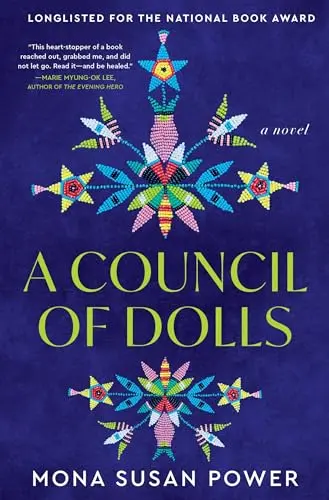The American Indian College Fund (College Fund) will host a free, online book and author event for the public featuring the PEN Award–winning Native American author, Mona Susan Power (Standing Rock Tribe), on March 26 from 12-1 Mountain Daylight Time. Power will discuss her new book, A Council of Dolls, with College Fund President, Cheryl Crazy Bull.

Mona Susan Power is the author of four books of fiction: The Grass Dancer (awarded the PEN/Hemingway prize), Roofwalker, Sacred Wilderness, and her most recent novel, A Council of Dolls (longlisted for the National Book Award). She has received numerous fellowships in support of her work, including an Iowa Arts Fellowship, James Michener Fellowship, Radcliffe Bunting Institute Fellowship, Princeton Hodder Fellowship, USA Artists Fellowship, McKnight Fellowship, and Native Arts and Cultures Foundation Fellowship. Her short stories and essays have been widely published in journals, magazines and anthologies, and her essay, “Bloodthread,” is forthcoming in The Georgia Review. Power was born and raised in Chicago and currently lives in Minnesota.
The profoundly moving and unforgettable new novel spans three generations of Yanktonai Dakota women from the 19th century to the present day. Power takes the reader to the mid-century metropolis of Chicago, the windswept ancestral lands of the Dakota people, and bleak and brutal Indian boarding schools. A Council of Dolls is the story of three women, told in part through the stories of the dolls they carried.
Sissy, born in 1961, has a difficult relationship with her beautiful and volatile mother, but her life is also filled with beautiful things, including a new a doll called Ethel Sissy received for Christmas. Ethel whispers advice and kindness in Sissy’s ear, and in one especially terrifying moment, the doll maybe even saves Sissy’s life.
Lillian, born in 1925 in her ancestral lands during a time of terrible change, clings to her sister, Blanche, and her doll, Mae. When the sisters are forced to attend an “Indian school” far from their home, Blanche refuses to be cowed by the school’s abusive nuns. But when tragedy strikes the sisters, Mae finds a way to defend the sisters.
Cora, born in 1888 during the brutal legacy of the “Indian Wars,” is not afraid of the white men who remove her to a school across the country to be “civilized.” When teachers burn her beloved buckskin and beaded doll, Winona, Cora discovers the spirit of Winona may not be entirely lost.
A Council of Dolls is a modern masterpiece: gorgeous, quietly devastating, and hopeful. Mona Susan Power shines a light on the damage wrought by Indian boarding schools and historical massacres that echo throughout generations of Indigenous people. With stunning prose, she artfully weaves a spell of love and healing with her storytelling.
To register for this free event, please visit www.collegefund.org/bookclub.
More Stories Like This
Bard College Center for Indigenous Studies (CfIS) Hosts Annual Symposium With Keynote Speaker Miranda Belarde-Lewis on March 9–10American Indian College Fund Announces Spring 2026 Faculty Fellow Cohort
Navajo Nation Signs $19 Million Diné Higher Education Grant Fund Act into Law
Dr. Shelly C. Lowe to Be Inaugurated as IAIA President March 26–27
Tlingit Language Courses Expand for Students to Learn With Families At-Home
Help us defend tribal sovereignty.
At Native News Online, our mission is rooted in telling the stories that strengthen sovereignty and uplift Indigenous voices — not just at year’s end, but every single day.
Because of your generosity last year, we were able to keep our reporters on the ground in tribal communities, at national gatherings and in the halls of Congress — covering the issues that matter most to Indian Country: sovereignty, culture, education, health and economic opportunity.
That support sustained us through a tough year in 2025. Now, as we look to the year ahead, we need your help right now to ensure warrior journalism remains strong — reporting that defends tribal sovereignty, amplifies Native truth, and holds power accountable.
 The stakes couldn't be higher. Your support keeps Native voices heard, Native stories told and Native sovereignty defended.
The stakes couldn't be higher. Your support keeps Native voices heard, Native stories told and Native sovereignty defended.
Stand with Warrior Journalism today.
Levi Rickert (Potawatomi), Editor & Publisher


